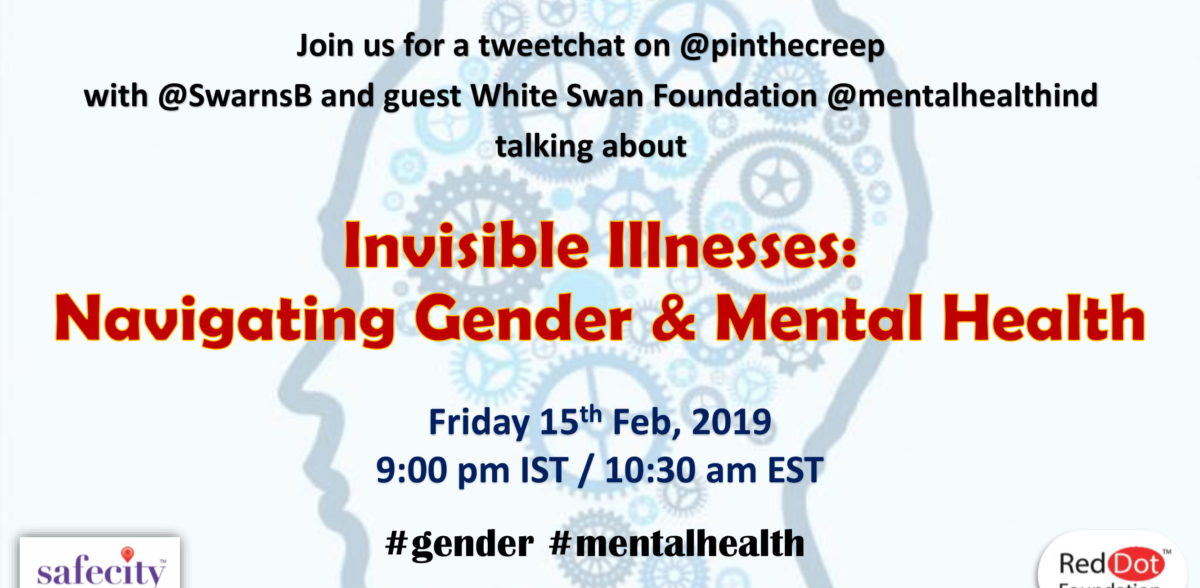Invisible Illnesses: Navigating Gender and Mental Health

The chat began with asking the question, Why are chronic invisible illnesses stigmatised? Why do we have different standards of judging different illnesses, and in the process, fail to provide necessary care? The possible reason for this, as contributed by the audience was mainly lack of knowledge about invisible illnesses. People rarely have idea about the illness or the possible symptoms or solutions, awareness campaigns could play a major role in increasing knowledge regarding this issue. The second question raised was how do these invisible illnesses affect women? The audience felt that women are particularly vulnerable during puberty, marriage, pregnancy and menopause. Apart from that violence, discrimination and bad nutrition contribute towards a bad mental health condition amongst women. The case is worsened because in case of women their issues are treated as an over-reaction or hysterical. Then, to answer the question relating to dealing with invisible illness in workplace, the audience discussed the importance of knowledge intervention and recognition as important tools. The aspect of how to navigate love and relationships with invisible illness was also discussed. Lastly how does digital space help with invisible illness and practical daily self-care tools were discussed like exercising, getting fresh air, eating healthy and doing activities that “spark joy” in a person.
A Tweetchat by Swarnima!

